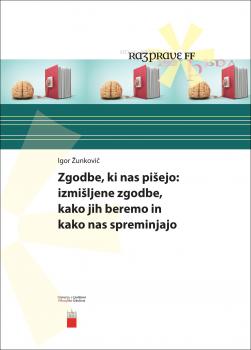Zgodbe, ki nas pišejo: izmišljene zgodbe, kako jih beremo in kako nas spreminjajo
Keywords:
cognitive literary studies, reading as a cognitive process, reading as a technology, neurobiology, neurocognitive literary studiesSynopsis
By reading other people's stories and poems, one makes mental or spiritual contact with them. Cognitive literary studies understands the functioning of the brain as a mechanism by which and in which reading occurs as a program, a cognitive process whose goal is to decipher the meaning of a written text. In this sense, reading stories or poems implies a merging of mental horizons, a true mental knowledge of the Other, through which the reader establishes himself as a person. But on the neurobiological level of brain and body functions, reading turns out not to be a cognitive process analogous to a computer program, but a technology that is not only historically dependent and changeable, but also conditioned by the neurobiological experiential processes of humans as beings. The latter are always at least perceptual, mental, linguistic, emotional, affective, motor, and mnemonic. Even this minimalist description of the cognitive processes involved in reading shows that an interdisciplinary approach is required to understand reading as a technology. This includes cognitive models, analyses of neurobiology and the neurological functions involved in the brain, and functional relationships between textual features and the psychological effects of reading.
Downloads

Published
Series
License

This work is licensed under a Creative Commons Attribution-ShareAlike 4.0 International License.

